Iran sanctions: Rouhani condemns US 'psychological warfare'
- Published
What is the Iran nuclear deal?
Iran's President Hassan Rouhani has hit out at the United States over its reinstatement of economic sanctions.
He described the measures, which came into effect overnight, as "psychological warfare" which aimed to "sow division among Iranians".
The sanctions take aim at various sectors, with further punitive action planned against Iran's oil trade.
The European Union has spoken out against the measures, vowing to protect firms doing "legitimate business".
It follows the US withdrawal from the Joint Comprehensive Plan of Action, also known as the Iran nuclear deal, earlier this year.
The deal, negotiated during the presidency of Barack Obama, saw Iran limit its controversial nuclear activities in exchange for sanctions relief.
US President Donald Trump says the deal is "one-sided" and he believes renewed economic pressure will force Iran to agree to a new deal, external and end its "malign" activities.
What are the sanctions?
Mr Trump signed an executive order which brought sanctions back into place at 00:01 EDT (04:01 GMT) on Tuesday. They target:
The purchase or acquisition of US banknotes by Iran's government
Iran's trade in gold and other precious metals
Graphite, aluminium, steel, coal and software used in industrial processes
Transactions related to the Iranian rial currency
Activities relating to Iran's issuance of sovereign debt
Iran's automotive sector
A second phase is planned to come back into effect on 5 November which will have implications for Iran's energy and shipping sectors, petroleum trading and transactions by foreign financial institutions with the Central Bank of Iran.
Why is the US implementing them?
The imposing of sanctions follows Mr Trump's withdrawal from the 2015 deal earlier this year.
Mr Trump had long spoken out against the agreement, labelling it "disastrous" and the "worst deal I've ever seen".
Only the US has withdrawn, with other signatories remaining committed to the original agreement.
Mr Trump says Iran faces a choice to "either change its threatening, destabilising behaviour and reintegrate with the global economy, or continue down a path of economic isolation".
"I remain open to reaching a more comprehensive deal that addresses the full range of the regime's malign activities, including its ballistic missile programme and its support for terrorism," Mr Trump said on Monday.
What has the reaction been?
Mr Rouhani said the US government had "turned their back on diplomacy" with the action.
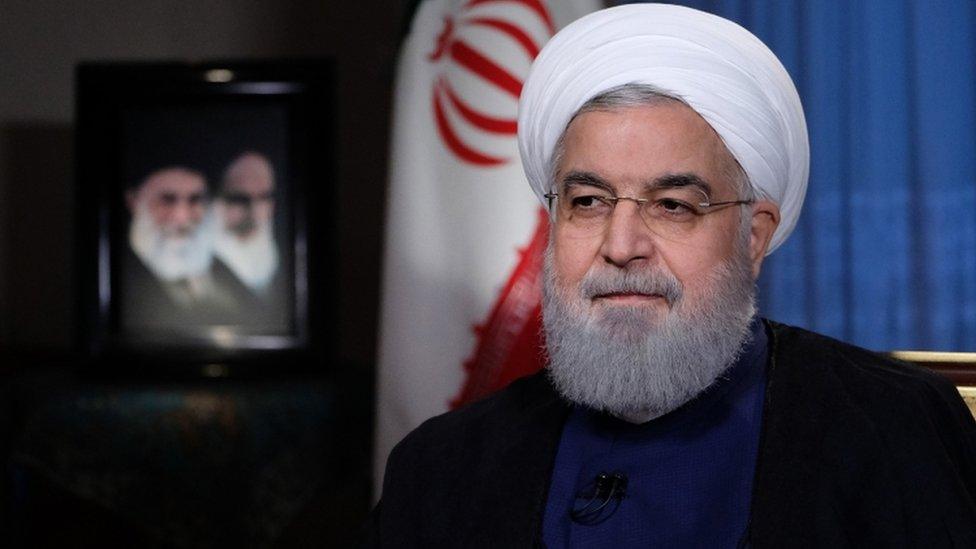
Mr Rouhani criticised Mr Trump's strategy, saying "negotiations with sanctions doesn't make sense"
"They want to launch psychological warfare against the Iranian nation." Mr Rouhani said. "Negotiations with sanctions doesn't make sense. We are always in favour of diplomacy and talks... but talks need honesty,"
He also accused the Trump administration of using Iran as domestic political leverage ahead of November's midterm elections in the United States.
The foreign ministers of Germany, the UK and France released a statement on Monday that said the nuclear deal remained "crucial" to global security.
They also unveiled a "blocking statute" which is intended to protect European firms doing business with Iran despite the new US sanctions.
Alistair Burt, the UK's minister of state for the Middle East, told the BBC: "If a company fears legal action taken against it and enforcement action taken against it by an entity in response to American sanctions, then that company can be protected as far as EU legislation is concerned."
However, German car and lorry maker Daimler, a major firm which announced a joint venture in Iran last year, confirmed this week that it has now ceased activities in the country.
The US had previously rejected calls to offer exemptions, with Mr Trump vowing "severe consequences" against firms and individuals who continued to trade with Iran.
An anonymous senior US official said that the administration was "not particularly concerned" by EU protection efforts, external.
How will Iran's economy be affected?
Iran has seen unrest since last December over a poorly-performing economy.
Rising food prices, unemployment and even poor water supplies have led to protests in a number of cities.
Demonstrations in Tehran in June were said to be the capital's biggest since 2012.
Tehran saw large-scale economic protests in June
How much they are tied to the new US sanctions policy is hard to determine, but one definite link is the effect on Iran's currency. It lost around half of its value since Mr Trump announced the US withdrawal from the nuclear deal.
Iran acted to ease its foreign exchange rules on Sunday and the rial has since strengthened by 20%.
Iranians have been hoarding gold as a safeguard, pushing it to a record high in Tehran.
The sanctions may bite hardest in November, when the US blocks Iranian oil sales.
This could halt about half of Iran's exports of some two million barrels a day, although Iran may look to China and Russia to keep its industry afloat.
The International Monetary Fund said in March that Iran's net official reserves could decline this year to $97.8bn, which would finance about 13 months of imports. And analysts at BMI Research say Iran's economy could contract by 4.3% in 2019.
However, Barbara Slavin, of the Future of Iran Initiative at the Atlantic Council, told the Wall Street Journal , externalthat when sanctions hit hard, it often means ordinary people become "totally dependent" on their government and so sanctions do not tend to topple regimes.
- Published16 July 2018
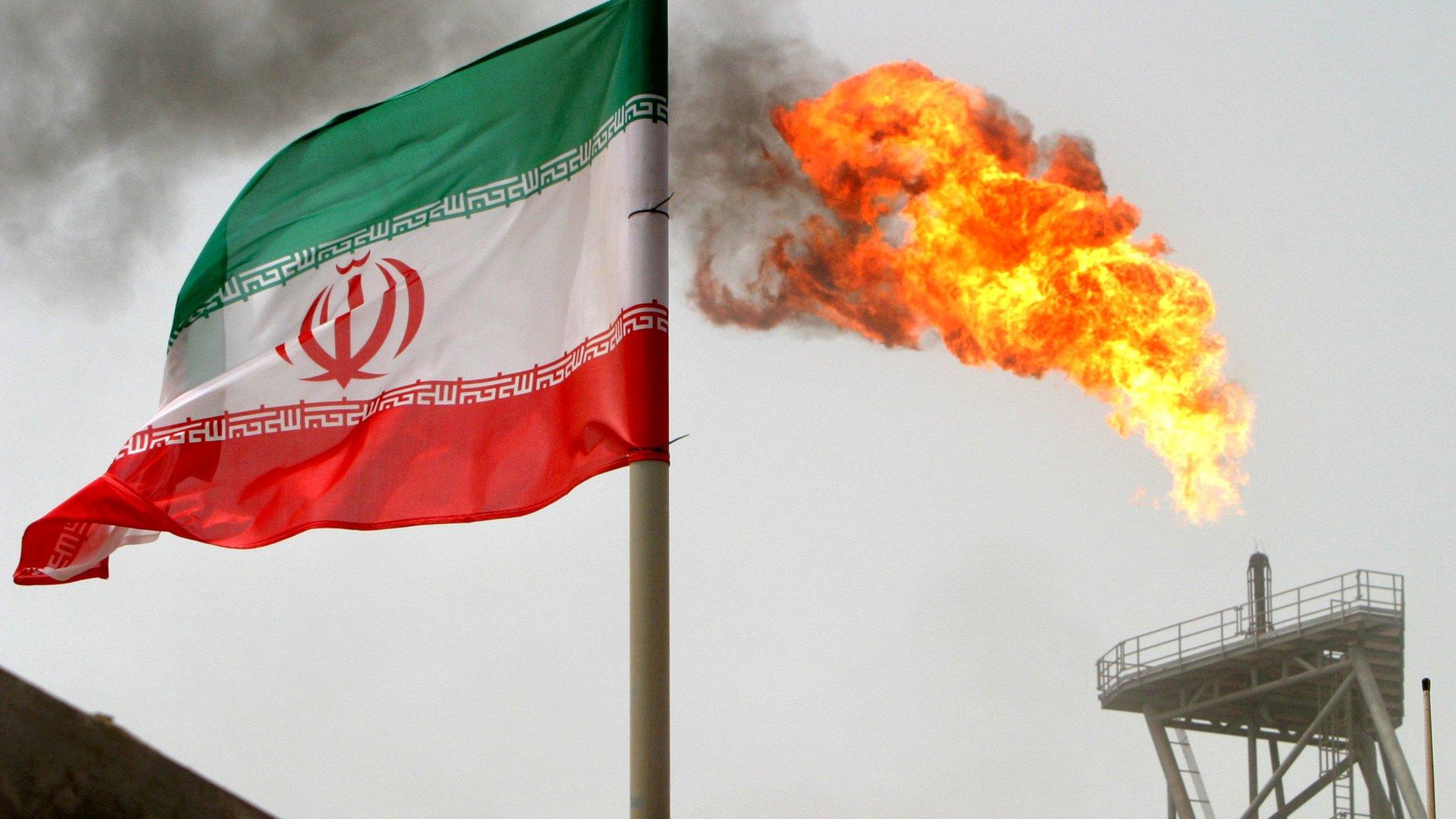
- Published21 May 2018
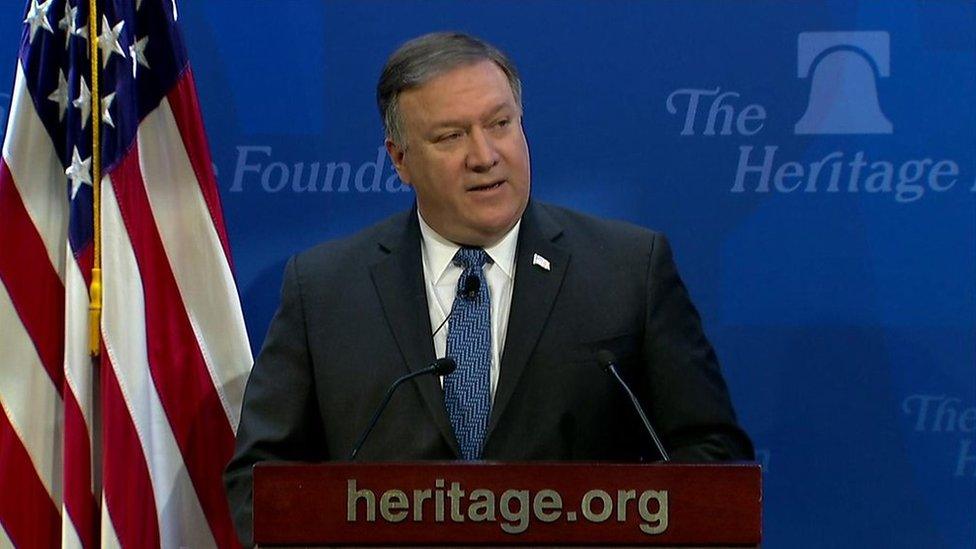
- Published21 May 2018
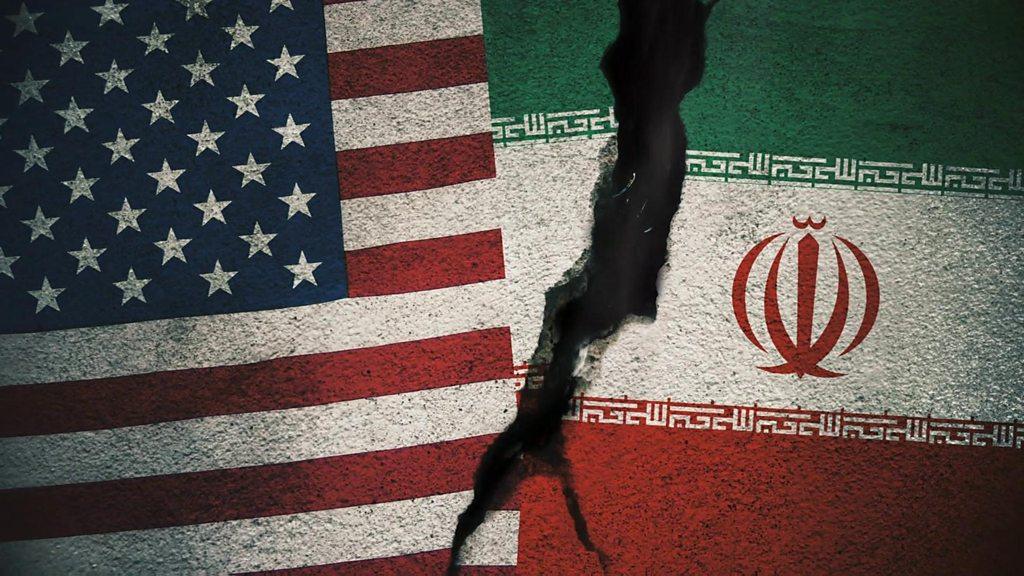
- Published17 May 2018
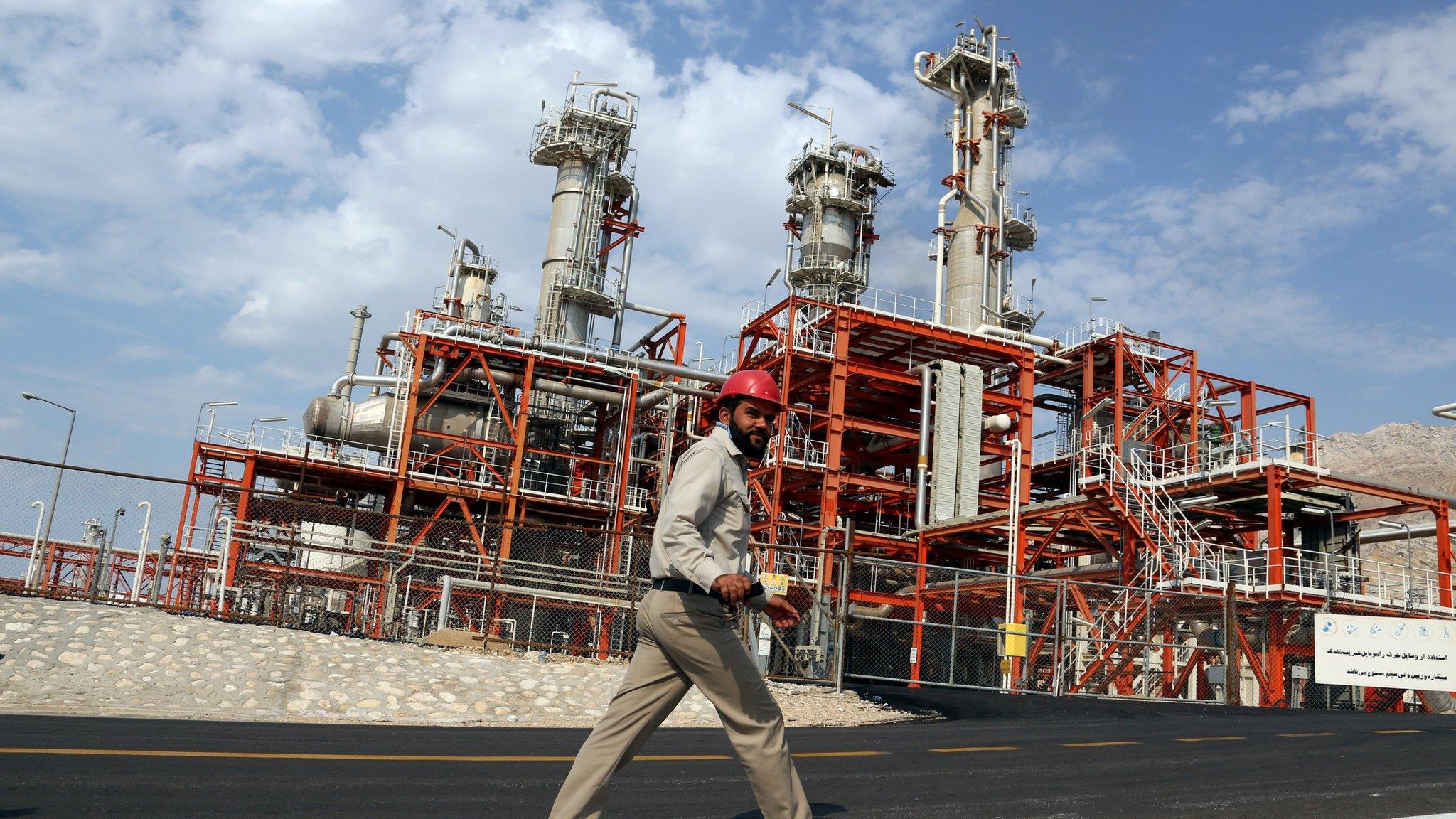
- Published10 May 2018
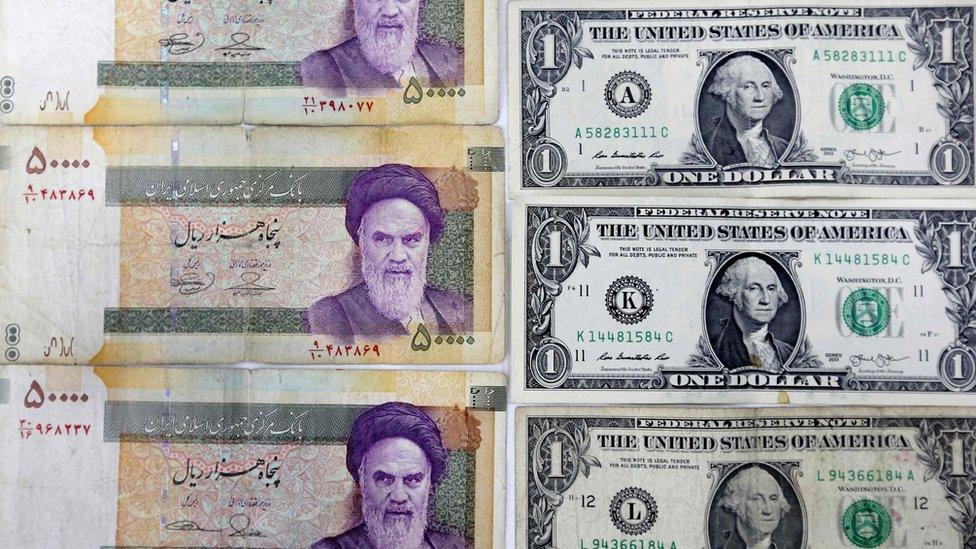
- Published8 May 2018